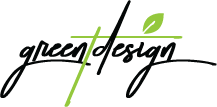Seo & Search
improve your position with quality and strategic content
Search engine optimization (SEO) is the practice of working websites and their pages to rank higher and above in Google, Bing, Yahoo, and other search engines. Ranking higher in these search engines directly leads to an increase in traffic.
Google Ads is a tool used to better promote your website and business. It helps sell or move products and services and add visitors to your website.
Google Analytics is as service that allows you to view statistics and use analytical tools for search engine optimization (SEO), marketing, and other uses.
Reputation management means influencing perceptions and conversations about an organization and its brands. Reputation management contains keeping tabs on perceptions and influences, resolving reputational threats, and seizing opportunities ahead of time to increase or maintain reputation.
A local business directories are websites that feature businesses listings according to a locality or industry. Listings on these websites usually contain frequently asked information.
Keyword integration is the means to ensure that the website content is successful and assists traffic and leads.
Web development involves the creation and maintenance of websites. It includes tasks such as designing the layout and appearance of a website, writing and editing the content, and implementing features such as forms, shopping carts, and other interactive elements. Web developers may work with a variety of programming languages and technologies, including HTML, CSS, JavaScript, and others.
One important aspect of web development is search engine optimization (SEO). SEO is the process of optimizing a website in order to improve its visibility and ranking on search engines such as Google. This can be achieved through a variety of techniques, including the use of keywords in the website’s content, the inclusion of meta tags and descriptions, and the creation of high-quality backlinks from other websites. Proper SEO can help a website attract more traffic and potentially increase its revenue.
There are many tools and resources available to web developers to help them optimize their websites for search engines. These include keyword research tools, analysis tools to identify technical issues with a website, and tools to measure the effectiveness of a website’s SEO efforts. By staying up-to-date with the latest SEO best practices and utilizing these tools, web developers can help ensure that their websites are visible and easily discoverable by users.
SEO & Search
Great SEO (Search Engine Optimization) involves a combination of techniques and strategies aimed at enhancing a website’s visibility on search engines. It includes optimizing content with strategically chosen keywords, managing online reputation, leveraging local directory listings for local businesses, using tools like Google Analytics to analyze user behavior, and utilizing paid advertising like Google Ads for immediate visibility. By incorporating these practices, businesses can improve their online presence, attract targeted traffic, and effectively engage with their audience.
Our Services:
- Search Engine Optimization
- Google Ads
- Google Analytics
- Reputation Management
- Local Directory Listings
- Keyword Integration

Search Engine Optimization
Search Engine Optimization (SEO) is the practice of optimizing a website’s content, structure, and various elements to improve its visibility in search engine results pages (SERPs). The goal of SEO is to enhance a website’s organic (non-paid) ranking for relevant keywords, thereby increasing its chances of attracting targeted organic traffic from search engines like Google, Bing, and others.
Google Ads
Google Ads is an advertising platform by Google that allows businesses to create and display paid advertisements within the search results and on various websites in the Google Display Network. Unlike SEO, where you work to improve organic rankings, Google Ads involves paying for ad placements, often using a pay-per-click (PPC) model. These ads can appear above or below the organic search results and are marked as “Ad.”
Google Analytics
Google Analytics is a web analytics tool provided by Google that helps website owners track and analyze user behavior on their sites. It provides insights into visitor demographics, traffic sources, user engagement, and more. This data is valuable for making informed decisions to improve the website’s performance, user experience, and overall effectiveness of marketing strategies.

Reputation Management
Reputation management involves monitoring, influencing, and managing a brand’s online image and perception. It encompasses strategies to respond to online reviews, comments, and mentions, whether positive or negative. This proactive approach aims to maintain a positive online reputation, enhance customer trust, and address any issues that may arise to prevent potential harm to the brand’s image.
Local Directory Listings
Local directory listings are online directories that list businesses and their information, such as name, address, phone number, and website, categorized by location and industry. Examples include Yelp, Google My Business, and Yellow Pages. Optimizing local directory listings is crucial for businesses targeting local customers, as these listings help potential customers find accurate information about the business and improve its local search visibility.
Keyword Integration
Keyword integration is the strategic use of relevant keywords throughout a website’s content, meta tags, URLs, and other elements. These keywords are the terms users commonly search for when looking for information related to a particular topic or industry. Proper keyword integration helps search engines understand the context of a page’s content and improves the likelihood of the page ranking for those keywords in search results.
Hook, Line and Social Media
To help you encourage views and get people to linger a little longer with your video, image and written posts, we’ve come up with some great hooks to capture those eyes.
Integrated Website Social Media Feeds – Pros and Cons
If you have a social media account, should you integrate your social feed into your website?
Help My Business Go Viral
Doubling or tripling the number of potential customers who see your posts and engage with them can often feel like you’ve gone viral. And can be a much better long-term marketing strategy.
Organic Social Media Marketing Vs. Paid Social Media Marketing
So, which should you do: focus on an organic approach or use paid ads to get your brand out there in the universe? The short answer is: do both.
Benefits of an Agency for Social Media Marketing
Here are our top 5 Benefits that your business could take advantage of by using an agency like Green T Design for Social Media Marketing .
What to Do When Social Media Goes Down
Here are some tips from our experience over the years helping companies protect their social assets.
Websites through Google Business Profiles are Going Away
The free websites made through Google Business Profiles will soon be deleted, and after a small window of time, will result in error messages.
Marketing Goals: Define, Track, Evaluate
When it comes to marketing, social media or otherwise, it’s good to have goals. Here are a few goal ideas to kick start your goal planning
Social Media Account Security
The hackers and spammers are everywhere! And they are targeting your business accounts. Educate yourself on some of their techniques.
Supplement Your Marketing Efforts
It may be time to consider supplemental marketing help. Does your Marketing Department run into any of these 3 hurdles.
Let’s Get Started!
Are you ready to take your business to the next level?











